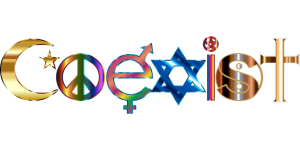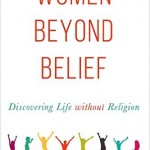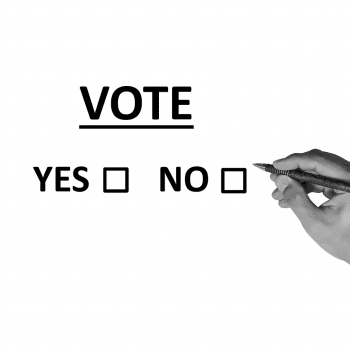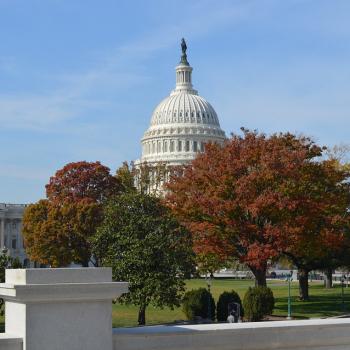Why did I make a response at all?
So where to begin with this response? First of all I want to state that I want to begin a conversation. I want to figure out ways to make more peaceful conversations possible between Catholics and atheists in the future. I really would like to engage more believers in conversation peacefully and respectfully. Which is part of why I wanted to make a response aimed at Mr. Karlson’s post in the first place. Peaceful and respectful dialogue cannot happen with loaded language like “delusions” and “self-theosis” (which by the way, according to Google isn’t a word. A word that can be used in its place is apotheosis, which can be used to mean the same thing), and by making claims like that atheists seek to fight against God. Just like peaceful conversations between the two groups cannot happen if atheists focus on topics which reflect negatively of Catholics, or if we as a community make antagonistic claims about the Church like that every priest is a pedophile or all Catholics are scared of death. Peaceful conversation won’t happen between our two groups if bloggers in either of our groups are using such language. Assuming that Mr. Karlson actually wants to change the minds of nonbelievers it’s unlikely that this will be an enticing method to get us to listen without being initially annoyed.
Now don’t get me wrong I am not saying that Mr. Karlson has an obligation to have a conversation with people who don’t agree with him. His blog doesn’t have to exist to foster conversations between believers and non-believers. My blog doesn’t exist to foster those conversations, my blog exists for a variety of reasons but partially to introduce English-speaking skeptics to the world of Spanish skepticism. So I get not being particularly interested in crossing theological boundaries. He doesn’t have to want to foster conversations between believers and non-believers. Not something he HAS to do. But I would assume that he’d be interested in non-believers approaching him and his readers with respect, which would be easier to do if they weren’t being aggressively mischaracterized by his posts, or that he’d at least not want to make dialogues across theological lines harder by antagonizing all non-believers. After reading Mr. Karlson’s post I feel like atheism was being misrepresented. Maybe you agree with me, maybe not. But I do feel that way and I’ll be explaining why in this response.
At last; the response itself:
So to finally begin my response to Mr. Karlson’s post in earnest, I want to begin by pointing out the obvious fact that not all atheists antagonize religion and religious people. Someone could argue that Mr. Karlson used words like “many” and “contemporary” to try and avoid a hasty generalization, but personally it felt a bit weak. I have little interest in criticizing religion as a whole, although debating about it can be an amusing past-time and a neat way to learn about theological beliefs from believers themselves.
Second I want to point out the simply untrue statement Mr. Karlson made about the supposed inability of people to be considered atheists. People can most decidedly be said to lack a belief in God and in other deities. If Mr. Karlson thinks that people secretly believe in God, no matter what, I genuinely have to ask that he prove it because I can sincerely say that as far as I can tell I do not have a belief in the deity of Christianity or in any other deity. I can also honestly say that I haven’t elevated anything to the position that I believe a deity should occupy in the hearts of those worship it. This is another place where it’s possible we could have avoided the issue altogether if he clearly and explicitly outlined what he thinks an atheist is.
For my next criticism we’ll be advancing past the story of Brahma. The next thing I think is not quite true in Mr. Karlson’s post is where he says atheists “know there is no God”. That’s not what atheism is. Atheism is a lack of belief in the existence of God or other gods, not a denial of their existence, or a statement that they don’t exist as a fact. What Mr. Karlson seems to dislike is what some atheists and agnostics call “gnostic atheism” which exists within the spectrum of positions tied to theism and atheism. Not all atheists are “gnostic atheists”. I am not a gnostic atheist. I am an agnostic atheist, which means (when simplified) that while I lack a belief in the existence of God I admit that I could be mistaken and that it might be that I simply do not know of the existence of a deity. Gnosticism and agnosticism are positions related to knowledge while theism and atheism are belief positions, these things are not mutually exclusive and like how agnostic-atheists and gnostic-atheists exist, agnostic-Christians and gnostic-Christians (and other types of theists) also exist. A good article about agnosticism and atheism and the possibilities of being an agnostic-atheist can be found here.
My final criticism of the beginning of Mr. Karlson’s post is this assumption of his that humanity cannot overcome what he describes as a “natural tendency to place something or someone on the place of divinity”. Maybe he can’t, but I did and I’m sure many nonbelievers and even followers of non-theistic religions would say that they have as well. It’s an arrogant thing to say, and another claim that I recommend Mr. Karlson prove rather than assert.
Of course I have issues with Mr. Karlson’s statements concerning why people start to “deny that God exists”. People who secretly believe that God exists are not atheists, they are some weird type of theistic-anti-theist, like the professor in “God’s Not Dead”. The first reason why Mr. Karlson states that people “deny God” is not the reasoning of a nonbeliever, but the reasoning of individuals who believe in the claims of Christianity but do not want people to become Christian. I don’t know if there’s a word for this stance, but it isn’t atheism.
His second claim is loaded with assumptions, namely that he is correct about the existence of God, and that people who do not believe (but once believed and were “wrong” about the nature of the deity, due to misinformation) are lazy and do not search for evidence which might contradict their current position and suggest that God exists. Some of those people become theists, but there are others who do not become theists and remain skeptics despite their search for evidence to the contrary.
My response to his third claim is basically the fusion of my first two responses.
My last response to his claims about atheism coming from ignorance while claiming knowledge is this: atheism doesn’t claim knowledge. Atheists by definition do not claim to know that no gods exist, it (“it” being atheism) isn’t a statement of how someone thinks the universe came into being, or anything like that. It is merely skepticism towards claims made to us by theists. Mr. Karlson then proceeds to reassert that he knows atheists better than we know ourselves saying we “hold something up as absolute”. I don’t do this. Many of the people I know don’t do this either.
In Conclusion:
Mr. Karlson created an interesting article but it was interesting because it shows what he thinks of atheism. It says nothing about the actual definition of atheism used by many atheists, and instead seems to use an internal definition which is never fully explained but seems to be atheism: the belief that God does not exist. This is not how I define atheism, which is the definition used by American Atheists; “Atheism is not a disbelief in gods or a denial of gods; it is a lack of belief in gods”. I understand that there are other definitions of atheism, but this is the one most of the self-described atheists I know use and it is the definition I use. But as far as I can tell no atheist uses anything resembling the definition of atheism that Mr. Karlson seems to be interested in discussing, although I bet there are gnostic atheists who would be interested in discussing that position, that is not something which applies to all atheists. If he were to respond to this I’d hope he’d write out his definition of atheism so that we can discuss it properly.

I think Mr. Karlson’s article will only create further divisions between atheists and Catholics and make it harder for us to talk to each other. I can doubt that Catholics are correct, while not calling them delusional or claiming that they attack atheism because they are secretly atheists and are just mad at reality. I hope that we can engage in more productive conversations than this and can come to a place where we can openly discuss our differences and learn from each other without using such language to describe others.
What do you think of my response? What do you think of Mr. Karlson’s post? How do you think we can come together and have more productive digital conversations? I’d love to hear your opinions in the comments section down below!















